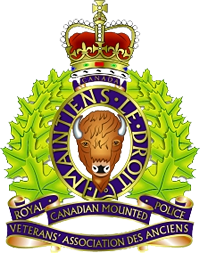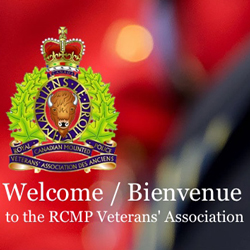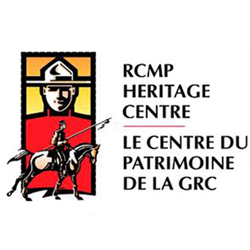Larry Burden’s This Day In The RCMP

The achievements and contributions of the Force have been built upon the individual contributions of many past Veterans. These contributions have largely been forgotten.
Veteran Sgt. Larry Burden ( #35982), who served in “E” Division for 20 years, has spent over ten years researching and summarizing these achievements by specific date. Nearly every day, Larry sends out an email message with a selection from his work in progress manuscript “This Day In The RCMP” to individuals interested in these historical notes.
In an effort to share his research to a large group, Larry has agreed to permit us to develop a webpage on our website. Each webpage will post Larry’s historical notations over the past week.
If you wish to contact Larry Burden or provide additional information about his research, please email him at larryburden8@gmail.com.
November 22nd
1915– #4054 Sergeant Robert Mundy was awarded $100 from the Fine Fund and promoted to Staff Sergeant for his meritorious service in the investigation and conviction of George Ball for the murder of William Long, in Whitemud, Saskatchewan.
1966– Honour Roll Number133.
#23018 Constable Gordon Donald Pearson age 23 was killed by Charles Wilfred Hill, when investigating a disturbance, at Winterburn, Alberta.
Shortly after 2:15 AM, Constable Pearson attended to complaint of three men fighting at the Holly Esso Café near Winterburn, Alberta. When he arrived, the primary suspect, Charles Wilfred Hill, had already left the scene. Pearson interviewed some of the patrons and two of the men involved in the fight and was about to leave when Hill walked into the café armed with a .303 rifle. Constable Pearson calmly turned to speak with the gunman, but before he could say anything or do anything Hill shot him twice, hitting him in the wrist and the stomach.
Hill then moved about the restaurant and shot and wounded one of the men who was involved in the dispute, and then shot another innocent bystander before leaving. A café customer, Shirley Parrish knew that Cst. Pearson’s stomach wound was the most serious of the three wounded men, and with the help of other patrons loaded Pearson into her car and she rushed him to the hospital in Edmonton. Sadly, he died a few hours later.
Hill was arrested the same morning and was later convicted of Pearson’s murder and sentenced to hang, but he appealed and received a second trial where he pleaded guilty to non-capital murder and was sentenced to life in prison.
Constable Pearson joined the RCMP on April 3, 1963 and was survived by Amy, his wife of only three months. He was buried with full honours at the cemetery at Neerlandia, Alberta.
1969– Six members received commendations for capturing an armed youth in a stolen truck at Biggar, Saskatchewan.
After the police seized some liquor from a local youth and took him home to his parents, the boy ran away in a fit of rage. He then stole his uncle’s pick-up truck and his .22 rifle.
In an attempt to capture the boy, constables #24893 Robert J.E. LeGrouix and #26522 Roy J.W. Karwaski (Also see May 4, 1980, Honour Roll #164) pursued the boy but he ran a roadblock and eventually became stuck when he attempted a U-turn.
After leaving the stolen truck the gunman walked towards Constable LeGerouix and refused to drop his rifle. As constables #25914 V. Bryan Scowby, and #26375 William H. Ellwood arrived on the scene the boy commandeered a passing vehicle and ordered the occupants out at gunpoint and sped off towards the town of Biggar. There he ran another roadblock manned by Sergeant #18302 Kasimer Klama, and Constable J.P. Brown.
As the vehicle ran through the roadblock Constable Brown fired several shots at the fugitives’ tires and then chased after him in his own personal vehicle reaching seeds of 90 miles per hour.
The pursuit continued on with Browns personal car and several police vehicles until the suspect was finally stopped when Constable Ellwood shot out his tires. Sgt. Klama and Constable Ellwood then approached the driver and eventually convinced him to surrender after he repeatedly threatened to kill himself.
Sergeant Klama and Constable Ellwood were awarded Commissioners Commendations for Bravery along with cheques for $100 from the Fine Fund for their actions. The other policemen were awarded Commanding Officers Commendations.
1980– The Bronze Life Saving Medal was awarded by the Most Venerable Order of St. John of Jerusalem to #31134 Constable Terrance A. Cameron, who on this day was snowmobiling on, Island Lake, in Manitoba with Band Constable M. Beardy. When Constable Beardy’s snowmobile broke through the ice, Constable Cameron risked his life to pull his partner out of the water and back to safety. Before the Bronze Medal can be awarded it must first be approved by Her Majesty the Queen.
November 21st
1950– The worst military train accident in Canadian history.
#15596 Constable Abram Willims thought that his term as the relief constable for the one-man Blue River detachment was going to be uneventful. Unfortunately, the military troop train from Camp Shilo, Manitoba collided head on at Canoe River, BC south of Valemount, with the regularly scheduled Canadian National Railways eastbound transcontinental passenger train. The military train, carrying 23 officers and 315 men of the Second Regiment; Royal Canadian Horse Artillery (2 RCHA) was en-route to Fort Lewis Washington, where the men would be conducting winter warfare training before being deployed to the Korea War.
Constable Willims was the first member to arrive at the scene where he discovered that seventeen soldiers and four train crew personnel had been killed and many others had been injured.
Eventually the investigation concluded that the cause of the accident was a dispatching error by 22-year-old Alfred John “Jack” Atherton, the telegraph operator at Red Pass Junction. He was eventually charged with manslaughter and fired. Member of Parliament John Diefenbaker who went on to become Canada’s 13th Prime Minister defended the man at his own expense including the $1500 he had to pay so he could become a member of the Bar in the Province of British Columbia.
During the trial, the prosecutor, former WWI Colonel Eric Pepler, and British Columbia’s deputy attorney general erred when he stated “…in this case we are not concerned about the deaths of a few privates going to Korea.”Mr. Diefenbaker took advantage of the prosecutor’s unfortunate remark and with as much indignation as he could muster, cried, “You’re not concerned about the killing of few privates! Oh Colonel!”The jury comprised of at least one veteran, quickly acquitted the accused.
Ironically2 RCHA suffered more casualties in the train crash than it did during its first year of fighting in Korea. And to add insult to injury, none of the soldiers who were killed in this tragedy were posthumous awarded the Canadian Volunteer Service Medal because they never reached Korea!
Abram Willms served in the RCMP from 1948 to 1975 when he retired as a Sergeant.
1976– Medal of Bravery Recipient
On this day #28982 Constable Richard Allan Burns rescued a deranged man in Yarmouth Nova Scotia who had intentionally set fire to his apartment and locked himself inside. When Constable Burns and a local policeman arrived at the scene they found the man sitting in his living room with a container of flammable liquid by his side. As the Constables approached the house, the man began spreading gasoline throughout the house and then set it on fire. Cst. Burns ran to the back of the building where he broke down the door and at great risk to himself, pursued the distraught man through the fire and caught him after he broke through the bathroom door. He then dragged the man to the back door where others helped him pull the man from the burning building.
Richard Allan Burns, M.B. served in the RCMP from 1971 until he retired in 2003.
1977– Constable #33618 R.A. MacDonald attended to a complaint of assault at Balcarres, Saskatchewan. When he entered a house, a man wielding a knife confronted him. Shortly thereafter #22920 Robert Anderson arrived at the scene and the two officers successfully convinced the man to surrender. Both members received a Commanding Officers commendation for their calm handling of the situation.
1982– Civilian member Bradley James Bozek earned a Commanding Officers Commendation when he prevented the escape of armed and dangerous criminal who had overpowered and injured his guard. The escapee had several outstanding criminal charges pending including five counts of attempted murder and three armed robberies.
November 20th
1841– Happy Sir Wilfrid Laurier Day
Sir Henri Charles Wilfrid Laurier, Canada’s seventh Prime Minister was born on this day in St. Lin, Quebec.He was the countries first francophone prime minister and is considered by many to be one of the country’s greatest statesmen. Throughout his career he sought to improve relations between the English and French-speaking Canadian. He was knighted in 1897. He died of a stroke on 17 February 1919, while he was still in office as Leader of the Opposition. His body rests in Ottawa’s Notre Dame Cemetery in a stone sarcophagus, adorned by sculptures of nine mourning female figures, each representing a province in the Canada.
1969– FLQ terrorists set off bomb at Montreal’s Loyola College.
1978– The St John Ambulance Meritorious Certificate was awarded to #31343 David E. Grundy for using cardio pulmonary resuscitation to save life of heart attack victim, in Yellowknife, NWT.
1995– Former Prime MinisterBrian Mulroney files a $50-million lawsuit against the federal Department of Justice and the RCMP. The lawsuit claims that his reputation was hurt by a letter sent to Swiss banking authorities by the police who were investigating allegations of him receiving a kickback in the sale of 34 Airbus jets to Air Canada in 1988.
November 19th
1883– The first white child is born in the new community of Calgary, Alberta.
1902– Tragedy struck again for Constable #3710 Daniel Holland while paddling across the Tagish Lake in the Yukon Territory with former constable #3164 Andrew Dickson. (See November 14th1901)The two men were paddling separate canoes across the lake when the wind speed increased, and Andrew Dickson’s canoe was swamped in the rough water while they were several miles from shore. He ended up in the turbulent water and slipped below the surface and drowned. There was nothing Constable Holland could do. Shortly after experiencing this second tragedy on the same lake Holland left the Force shortly thereafter.
Andrew Dickson had served in the Force from 1896 to 1900 and left to work alongside his two brothers running their fishing camp on Tagish Lake. Both of his brothers had served in the NWMP as well: #2101 Thomas Alexander Dickson and #2102 Adam Dickson.
Daniel Holland died in 1948. He is buried in Melrose, New Brunswick.
1981– To protest the exclusion of aboriginal rights from Canada’s new constitution, over 3,000 Native Indians march on Parliament Hill, and in several other sites across Canada.
November 18th
1949– The RCMP begins security screening of employees at the National Film Board because the NFB began doing work for the National defense department.
1976– The Meritorious Life Saving Certificate from the St. John Ambulance was awarded to life saving to Alberton Prince Edward Island detachment member #26090 Constable Robert R. Humes.
1992– RCMP seize record 4,323 kilos of cocaine with a street value of $2.7 billion. The Canadian military, with the help of the US DEA, track the plane from South America. When it was inside Canadian air space the military then chased it with jet fighters and military helicopters over New Brunswick, and then forced it to land at a remote airstrip in Casey Quebec. Two days later a raid was executed on the associated processing lab in Laval, Quebec where they arrested four Quebeckers and three Columbian nationals.
2001– #48139 Constable Peter Magdic, age 28, was killed in a police motor vehicle accident on Highway 240, approximately 12 kilometers south of Portage la Prairie, Manitoba.
He was returning from a routine call on the Long Plain First Nation when his vehicle went off the road on curve and rolled over. A passing motorist used the constable’s portable radio to call for help discovered his vehicle. Constable Peter Magdic had only been in the RCMP since December 2000. He is not listed on the Honour Roll.
November 17th
1879 – Honour Roll Number 3.
The first Mountie murdered in the line of duty.
#335 Constable Marmaduke Graburn, age 19, who was murdered by a person or person’s unknown.
Constable Graburn was on duty guarding horses at the NWMP “Sick Horse camp” in the valley of Battle Creek near Fort Walsh, in the Cypress Hills on the Saskatchewan-Alberta border. Earlier on the day he was murdered, Constable Graburn had a confrontation with a Blood Indian named Star Child who had been hanging around the camp begging for food. Graburn had ordered him to leave the camp after calling him a “miserable dog”. When Graburn’s rider less horse returned to Fort Walsh without him a search party was organized and sent to find him. #458 (Original Series) Sgt. Robert McCutcheon located his body at the bottom of a coulee and found that the constable had been shot in the back of the head at close range. Suspicion immediately fell on a “Star Child” who had fled to the Bear Paws Mountains in Montana. Several attempts to have American authorities arrest and send him back to Canada failed but on May 18th1881, Star Child was spotted at the Blood Camp twenty-five mile from Fort Macleod. Four members accompanied by Métis Scout Gerry Potts were sent to the camp and after a violent struggle they handcuffed and arrested him and with several Blood warriors in pursuit, rushed him back to Fort Macleod. On October 18, 1881 Star Child was tried for the murder of Constable Graburn, even though he admitted to the murder and the police provided corroborating evidence, the jury of six ranchers fearing reprisals acquitted him for lack of evidence.
Marmaduk Graburn was buried in plot eight at Fort Walsh, which is now a National Historic Site. Star Child was arrested later for horse theft and sentenced to prison.
1918– A contingent of cavalry composed of six officers and 184 men known as “B” Squadron of the RNWMP under command of #O.123 Superintendent George S. Worsley departed for Siberia aboard the RMS “Monteagle”, arriving at Vladivostok Russia on December 17. B Squadron had been sent to Russia to support allied intervention in the Russian civil war. After spending several months waiting to be utilized they were sent back to Regina on July 7th, 1919. Their only casualty was #7501 Cst William Henderson who died of influenza. See December 29,1918. Only a small party of men who stayed behind to escort a trainload of the contingent’s horses saw action when they were attacked by Red Army partisans. Two of the members were decorated for their actions in the attack.
1968– Commendation for bravery issued to #23779 Cst. Arthur Madrigga who was dispatched to the scene of a polar bear attack at the Vocational School in Churchill, Manitoba. Upon his arrival he discovered that the bear still had the victim “Pauloosie Meeko” in its mouth. To get the bear to release the boy, Cst Madrigga fired shot in air, but the bear carried boy 70 feet away and then dropped him. Then the bear reared up and roared as Madrigga took aim and killed the beast. The child was rushed to hospital, but unfortunately died of his wounds.
1995– Constables #38741 Keith Jones and #43937 Tammy Patterson, received commendations for disarming a dangerous suicidal man on the Kawacatoose Reserve, Sask.


 November 21, 2019
November 21, 2019 






